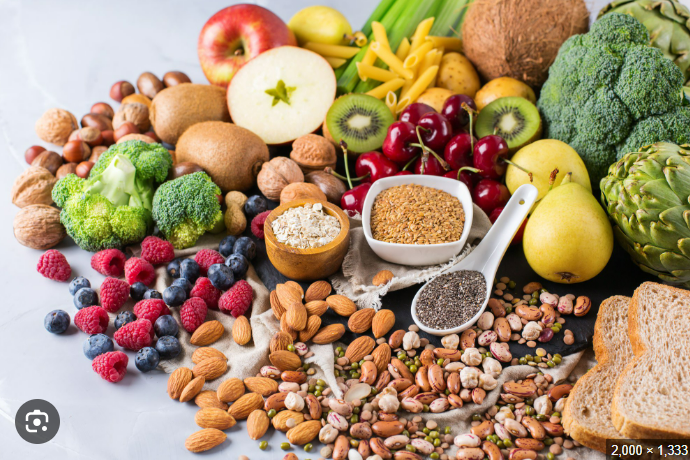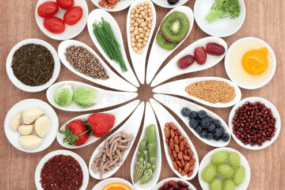
In today’s health-conscious world, the term “superfood” is more than just a buzzword—it’s a lifestyle choice. But what really makes these foods so super? Packed with nutrients, antioxidants, and flavorful goodness, superfoods hold the key to elevating your diet and enhancing your well-being. If you’ve been searching for ways to improve your health or simply want to spice up your meals, you’re in luck. We’ll dive into the essentials of superfoods: what they are, how to incorporate them into your daily life, and which ones you should prioritize for maximum benefits. Get ready to unlock the potential of these powerhouse ingredients and transform not only how you eat but also how you feel!
What are superfoods and why are they important?
Superfoods are nutrient-dense foods that offer exceptional health benefits. These include fruits, vegetables, grains, nuts, and seeds renowned for their high concentrations of vitamins, minerals, fiber, and antioxidants.
The importance of superfoods lies in their ability to support overall wellness. They can boost your immune system, improve digestion, and even reduce the risk of chronic diseases. Incorporating these potent ingredients into your meals provides a natural way to enhance your nutrition without relying on processed options.
Moreover, many superfoods are versatile and easy to add to various dishes. Whether through smoothies or salads or simply as snacks—they make healthy eating enjoyable and accessible. By embracing these vibrant foods in your diet, you empower yourself with tools for vitality that nourish both body and mind.
Incorporating superfoods into your diet
Incorporating superfoods into your diet can be a simple and enjoyable process. Start by selecting a few that excite you. Whether it’s kale, quinoa, or acai berries, pick ingredients you genuinely like.
Add greens to smoothies for an easy nutrient boost. Toss in some chia seeds or flaxseeds for added fiber and omega-3s without altering the taste much.
Consider sprinkling nuts on salads or oatmeal. They add crunch while providing healthy fats and protein.
Experiment with different recipes—superfood bowls, energy bites, or homemade granola are all great options. Each dish can become a canvas for nutritious ingredients.
Don’t forget about breakfast; incorporating superfoods here sets a healthy tone for the day. A smoothie bowl topped with fresh fruit is both visually appealing and packed with vitamins.
Make gradual changes instead of overhauling your entire diet overnight—it makes the transition smoother and more sustainable.
The top 10 superfoods and their health benefits
Blueberries are tiny powerhouses packed with antioxidants. They help fight inflammation and may boost brain health.
Kale is a nutrient-dense leafy green. It’s rich in vitamins A, C, and K, supporting immune function and skin health.
Quinoa offers a complete protein source for vegetarians. This ancient grain helps keep you full while providing essential amino acids.
Chia seeds are small but mighty. High in omega-3 fatty acids, they promote heart health and can improve digestive wellness.
Avocados deliver healthy fats that support brain function. Their fiber content also aids digestion while keeping hunger at bay.
Sweet potatoes are an excellent source of beta-carotene. They contribute to eye health and provide steady energy levels throughout the day.
Turmeric contains curcumin, known for its anti-inflammatory properties. It may even enhance mood by easing symptoms of depression.
Salmon provides high-quality protein along with omega-3s beneficial for heart health and cognitive function.
Spinach is another leafy green worth adding to your plate. Rich in iron and magnesium, it supports muscle function and overall vitality.
Nuts like almonds offer healthy fats alongside vital nutrients such as vitamin E, which promotes skin health while satisfying snack cravings without excess calories.
How to shop for and store superfoods
Shopping for superfoods can be an exciting adventure. Start by visiting local farmers’ markets or health food stores. Fresh produce often packs the most nutrients. Look for seasonal options that are vibrant in color.
When purchasing packaged superfoods, check the ingredient list carefully. Avoid those with added sugars or artificial preservatives. Opt for organic when possible to reduce pesticide exposure.
Storage is just as crucial as selection. Keep fresh fruits and vegetables in a cool, dark place or refrigerate them to extend their shelf life. For dried superfoods like goji berries or chia seeds, store them in airtight containers away from direct sunlight.
Regularly assess your pantry and fridge to ensure nothing spoils unnoticed. Rotating through your stock helps maintain freshness and encourages you to consume these nutrient-rich foods consistently.
When it comes to shopping for superfoods, a little knowledge goes a long way. Start by visiting your local farmer’s market or health food store. Freshness matters, and these places often stock seasonal produce bursting with nutrients.
Look for vibrant colors when selecting fruits and vegetables. The brighter they are, the more antioxidants they contain. If you’re opting for packaged superfoods like powders or supplements, always check the ingredient list. Avoid items with added sugars or artificial preservatives.
As you bring your superfoods home, proper storage is key to maintaining their nutritional value. Leafy greens should be kept in the fridge wrapped in damp paper towels to stay fresh longer. Berries do well stored in airtight containers but avoid washing them until just before consumption; excess moisture can lead to spoilage.
For pantry staples like nuts and seeds, choose glass jars over plastic bags when possible—they keep out light and air better than traditional packaging. Keep them cool and dry as high temperatures can diminish their quality over time.
Remember that incorporating superfoods into your diet is not about perfection; it’s about balance and variety. With thoughtful shopping habits and proper storage techniques, you’ll enjoy all the benefits these nutrient-packed ingredients have to offer while enhancing your overall wellness journey.
Superfood supplements: Are they necessary?
Superfood supplements have surged in popularity over recent years. Many people believe they are a quick fix for nutrition. But do we really need them?
The truth is, whole foods often provide the best nutrients. Fruits, vegetables, nuts, and seeds are naturally rich in vitamins and minerals. They also contain fiber and antioxidants that supplements can’t replicate.
However, busy lifestyles can make it challenging to eat a balanced diet daily. In such cases, superfood supplements may offer convenience without completely replacing whole foods.
It’s essential to choose high-quality products if you decide to go this route. Look for transparency in sourcing and ingredient lists. Also consider your personal health goals when deciding on supplementation.
Always consult with a healthcare professional before adding any new supplement regimen to ensure it aligns with your needs.
Conclusion
Embracing superfoods can be a transformative step toward better health. These nutrient-dense powerhouses offer an array of benefits that support overall wellness and vitality. By incorporating them into your daily meals, you not only enhance the flavor of your dishes but also fuel your body with essential nutrients.
As you explore different ways to bring superfoods into your diet, remember that variety is key. Each ingredient has its unique set of properties, so mixing them up will provide a broader spectrum of nutrients. From smoothies to salads and everything in between, there are countless ways to enjoy these ingredients.
When shopping for superfoods, always prioritize freshness and quality. Proper storage helps maintain their nutritional value, ensuring you get the most out of every bite. And while supplements may seem tempting for convenience, whole foods generally deliver more comprehensive benefits without the risk associated with overconsumption or unregulated products.
Making informed dietary choices leads to long-lasting habits that promote health and well-being. So take a step towards discovering new flavors and boosting your nutrition by exploring the world of superfoods—your body will thank you!























